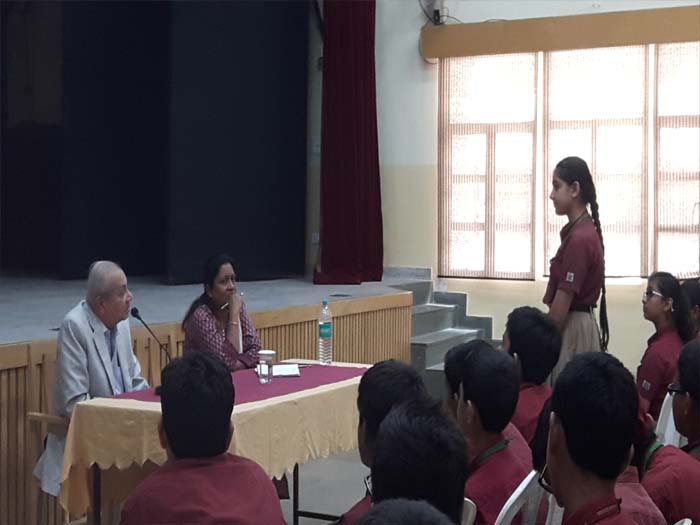Interaction with School chairman, Mr. Prafull Goradia on the topicPURPOSE OF EDUCATION.
What is the purpose of education? This question agitates scholars, teachers, statesmen, in fact, every group of thinking men and women. The conventional answer as we know, is that the purpose of education is acquiring knowledge, and the learning of facts! Perhaps because there are so many branches of knowledge today, we begin to hear more frequently that the function of education is to give children a desire to learn and to teach them how to use their minds and where to go to acquire facts when their curiosity is aroused.
More all-embracing than this is the statement made not long ago, before a group of English headmasters, by the Archbishop of York, that
" the true purpose of education is to produce citizens." The single continuing purpose of education, since ancient times, has been to enable common people to realise what it is to be a human being which is an elevated form of existence amongst living things.
Other statements of educational purpose have also been widely accepted: to develop the intellect, to serve social needs, to contribute to the economy, to create an effective work force, to prepare students for a job or career, to promote a particular social or political system, etc.
[gallery link="file" order="DESC"]
On 29th July 2017, the students of class 8 had an interaction with Mr. Goradia on the topic, the `Purpose of Education. Mr. Goradia offered many reasons for the purpose of acquiring
knowledge about anything. Sir told us his experience of study during his school days. He told us that the need of education is very important to reach a certain position or goal in our lives.
Mr. Goradia explained that our parents spend a lot of money on educating us and it is therefore the responsibility of children to focus on their studies and not waste. Time is in any case very precious, he emphasised. One will not get back time once gone, so it is critical to utilise time fully to learn new skills including those beyond the prescribed syllabus. All the things we learn will help us differentiate better and better between what is right and wrong.
Sir used an example to explain how the government is trying its best to promote education. He said that, for example,
in the process of selling matchboxes, occupations are created for a large number of people who in turn earn and then procure other commodities. In the process they pay taxes, which in turn provides the government with money to sponsor and promote education.
The talk prompted us to ask questions. Students of the different sections asked many questions relating to the topic for which we were patiently
given answers.
Samiksha Nair, VIII C.













